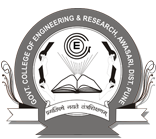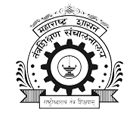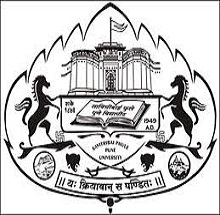Vision, Mission and Program Educational Objectives
Institute Vision
Institute Mission
Department Vision
Department Mission
Program Education Objectives
PROGRAM OUTCOMES
Program Specific Outcomes (PSO)
| “Educational Institutional for Empowerment through technological excellence towards sustainable development” |
| Value based and demand driven education using best practices |
| Promotion of research, innovation and entrepreneurship |
| Commitment to sustainable solutions in service of Society |
| Capability to face local and global challenges |
| “To be an ideal educational hub in the field of computer engineering producing proficient professionals inculcating human values for the sustainable development of the mankind” |
| To educate students to be a software professional through critical thinking and analytical skill development |
| To enhance technical knowledge to face global challenges |
| To encourage students for higher studies, entrepreneur and professional career |
| To nurture ethical, moral values and spirit of social commitment |
| To provide core therotical and practical knowledge in the domain of Computer Engineering | To enable graduates to develop software systems by understanding the importance of social, business and environmental needs in the human context | To foster successful career as a software professional/entrepreneur/researcher in Computer Engineering |
| PO1 | Engineering knowledge Apply the knowledge of mathematics, science, Engineering fundamentals, and an Engineering specialization to the solution of complex Engineering problems. |
| PO2 | Problem analysis Identify, formulate, review research literature and analyze complex Engineering problems reaching substantiated conclusions using first principles of mathematics, natural sciences and Engineering sciences. |
| PO3 | Design / Development of Solutions Design solutions for complex Engineering problems and design system components or processes that meet the specified needs with appropriate consideration for the public health and safety, and the cultural, societal, and Environmental considerations. |
| PO4 | Conduct Investigations of Complex Problems Use research-based knowledge and research methods including design of experiments, analysis and interpretation of data, and synthesis of the information to provide valid conclusions |
| PO5 | Modern Tool Usage Create, select, and apply appropriate techniques, resources, and modern Engineering and IT tools including prediction and modeling to complex Engineering activities with an understanding of the limitations. |
| PO6 | The Engineer and Society Apply reasoning informed by the contextual knowledge to assess societal, health, safety, legal and cultural issues and the consequent responsibilities relevant to the professional engineering practice |
| PO7 | Environment and Sustainability Understand the impact of the professional Engineering solutions in societal and Environmental contexts, and demonstrate the knowledge of, and need for sustainable development. |
| PO8 | Ethics Apply ethical principles and commit to professional ethics and responsibilities and norms of Engineering practice. |
| PO9 | Individual and Team Work Function effectively as an individual, and as a member or leader in diverse teams, and in multidisciplinary settings. |
| PO10 | Communication Skills Communicate effectively on complex Engineering activities with the Engineering community and with society at large, such as, being able to comprehend and write effective reports and design documentation, make effective presentations, and give and receive clear instructions. |
| PO11 | Project Management and Finance Demonstrate knowledge and understanding of Engineering and management principles and apply these to one’s own work, as a member and leader in a team, to manage projects and in multidisciplinary Environments. |
| PO12 | Life-long Learning Recognize the need for, and have the preparation and ability to engage in independent and life-long learning in the broadest context of technological change. |
| PSO1 | Professional Skills-The ability to understand, analyze and develop computer programs in the areas related to algorithms, system software, multimedia, web design, big data analytics, and networking for efficient design of computer-based systems of varying complexities |
| PSO2 | Problem-Solving Skills- The ability to apply standard practices and strategies in software project development using open-ended programming environments to deliver a quality product for business success. |
| PSO3 | Successful Career and Entrepreneurship- The ability to employ modern computer languages, environments and platforms in creating innovative career paths to be an entrepreneur and to have a zest for higher studies. |
Developed & Managed by Government College of Engineering & Research Avasari ,Pune.
Web-Information-Manager (Website Content Managed by Computer Engineering Department)
Security Policy | Hyperlinking Policy | Terms & Conditions | Privacy Policy | Copyright Policy | CAP | CMAP | CRP | Help
Web-Information-Manager (Website Content Managed by Computer Engineering Department)
Security Policy | Hyperlinking Policy | Terms & Conditions | Privacy Policy | Copyright Policy | CAP | CMAP | CRP | Help
Website last updated on:









